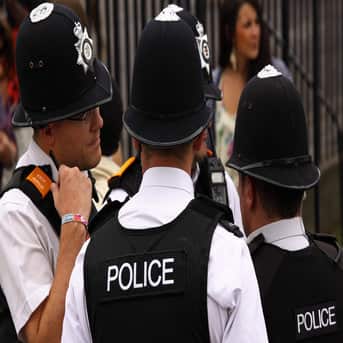Reporting a Crime.
If the crime is ongoing call 999, you should not put yours or anyone else’s safety at risk by taking action yourself...link
Calls are being made to update our measures to counter terrorism in the UK; we already have some of the toughest powers of any developed country and are constantly being asked to review our laws over concerns that they breach human rights.
Theresa May has stated we must adapt ‘a new trend’ on terrorism, in a speech that echoed Tony Blair after the 7/7 bombings, as a result the government at the time introduced ‘control orders’ which were soon abolished to be replaced by ‘Terrorism Prevention Orders’.
Powers available.
Detention.
A person can be held for 14 days under the Terrorism Act without charge, the original law allowed for a 28 day detention but this was amended in 2006.
The last statistics show that the longest a person was detained was 13 days.
Stop and Search.
Police have the power to stop and search under the Terrorism Act if they suspect a person, but under separate laws, the police have the power to stop and search even if they don’t have suspicions, and as such, most police forces do not hold statistics showing how many people were stopped under the Terrorism Act.
Arrest.
If the police suspect a person is planning to carry out an act of terrorism they have the power of arrest.
If found guilty the offence carries a maximum sentence of life imprisonment, it is also an offence not to inform the police if someone is aware others may be planning an attack, an offence that carries a five year jail term.
Surveillance.
Surveillance powers in the UK are far reaching, through a surveillance order surveillance can be carried out inside a property or vehicle.
Security services such as GCHQ and MI5 have the ability to intercept communications, and as a result in the Investigations Powers Act every internet company must hold information on all internet and messaging activity for everyone for a year.
Terrorism Prevention and Investigation Measures.
Introduced in 2012 replacing control orders, TPIM’s allow for a person to be tagged and set out several restrictions such as surrendering travel documents and reporting to the police on a regular basis.
TPIM’s also allow for a person to be relocated, an order normally lasts 12 months but can be extended for a further 12 if required; breaching an order can carry a prison sentence.
Not many people are subject to TPIM’s.
Border control.
In the year up to June 2016 over 23,000 people were stopped under schedule 7 of the Terrorism Act of 2000, the authorities have the power to question a person for up to six hours and search belongings including any electronic devices.
Exclusion Orders.
Used only once before, the order gives the authorities the power to prevent a person re-entering the country if it is suspected they have been involved in Terrorist activities whilst outside the UK.
Member of a banned organisation.
A number of groups are banned in the UK, being a member of a banned organisation can carry a prison sentence of up to 10 years.
What’s next?
It seems that regulating cyberspace will come under review, concerns have been raised that pushing those that spread hate and violence away from main stream platforms will make it harder to monitor, the Westminster attacker used Whatsapp to send a final message, because of the way Whatsapp works it is impossible to know the message and its recipient, because it uses end to end encryption meaning only the sender and recipient can open the message.
This is a technology issue not a legislative one, controlling the internet will not be simple.


What is Double Jeopardy? and is it still Law in the UK?..
linkIf the crime is ongoing call 999, you should not put yours or anyone else’s safety at risk by taking action yourself...link
Police cautions and warnings are the same and can be issued to anyone over the age of ten for minor offences, whilst this does not count as a conviction it can ..link
Anyone found in possession of cannabis could be liable to a fine or a prison sentence, cannabis is classed as a B category drug in the UK and is illegal...link
Over 2000 section 60 notices have been issued in London last year..
linkPoints on your Driving License - What happens when you receive points on your Driving Licence, How long do they stay, how many points until you are banned from ..link
Up until a child reaches the age of 12, or 135 cm, a child must use a booster or car seat, when a child is not required to use a car seat or booster they must, ..link
What is meant by 'handling stolen goods'...link
Police Chiefs are calling for a change in the 'stop and search' l..
linkYou may have witnessed people driving, 'dangerously' or you may have been stopped for dangerous driving, but are you aware that there are other charges that fal..link
What is Double Jeopardy? and is it still Law in the UK?..link

Solicitors.com are not a firm of solicitors, and any content on the site should not be used in substitute for obtaining Legal advice from a solicitor regulated in the UK, Solicitors.com recommends that you contact a firm of solicitors to discuss your individual legal requirement. Whilst we strive to bring you accurate up to date content, all content on this site is not legal advice and is not guaranteed to be correct. Use of this site does not create a client relationship.